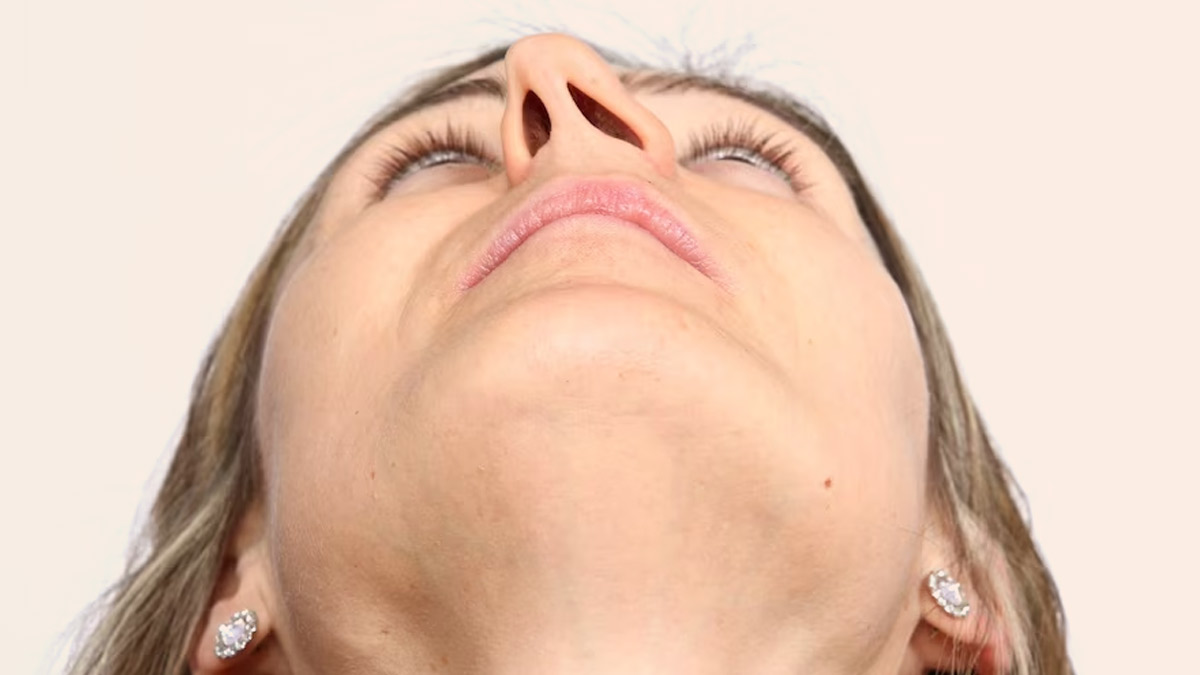
The nasal septum, a crucial structure that divides the nasal cavity into two chambers, can sometimes deviate from its normal position. This condition, known as a deviated septum, can lead to a variety of symptoms and challenges. We spoke to our expert Dr Pradeep Mahajan, Regenerative Medicine Researcher and Founder of StemRx BioScience Solutions India, who listed its symptoms, causes, conventional treatment options, associated risks, and the emerging role of regenerative medicine in addressing this common nasal issue.
Table of Content:-
Symptoms of Deviated Septum

A deviated septum can manifest in various ways, with symptoms ranging from mild to severe. Dr Mahajan listed its common signs as follows:
- Nasal congestion: Breathing blockage causing difficulty through one or both nostrils
- Nosebleeds: The deviation may cause the nasal mucosa to dry out and become more susceptible to bleeding.
- Facial pain or headaches: As a result of the increased effort required to breathe, individuals may experience discomfort in the face or recurring headaches.
- Recurrent sinus infections: Obstruction can lead to poor drainage and increased susceptibility to infections.
Also Read: Blocked Nose In Babies: Try These Home Remedies For Relief
Causes of Deviated Septum

“Deviated septums can be congenital, meaning individuals are born with them, or they may develop later in life due to trauma, such as a broken nose. The gradual ageing process can also contribute to septal deviation”, informed Dr Mahajan.
According to a study published by Cureus, the degree of the deviation may influence nasal airflow in certain people, leading to blockage or olfactory function impairment. Clinical manifestations of nasal septal deviation also include breathing noises, headache, rhinosinusitis, hypertension, and obstructive sleep apnoea.
Conventional Treatment

Conventional treatments for a deviated septum often focus on managing symptoms rather than correcting the underlying issue. Dr Mahajan listed the common approaches as follows:
- Nasal decongestants: Medications that reduce nasal congestion and improve airflow
- Antihistamines: Useful in managing allergies and reducing inflammation
- Nasal corticosteroid sprays: These can alleviate inflammation and promote easier breathing
For more severe cases, surgical intervention in the form of septoplasty may be recommended. To increase airflow and reduce symptoms, the septum is straightened during this procedure.
Also Read: Symptoms and Complications Of Night-time Mouth Breathing; Expert Weighs In
Risks of Conventional Treatment
While conventional treatments can provide relief, they may come with potential risks and side effects. “Medications may cause drowsiness, and long-term use can lead to dependence. Surgical procedures carry the inherent risks associated with any surgery, such as infection, bleeding, or adverse reactions to anaesthesia”, informed Dr Mahajan.
Regenerative Medicine and Deviated Septum
In recent years, regenerative medicine has emerged as a promising avenue for addressing a deviated septum. This innovative approach harnesses the body's natural healing mechanisms to repair and regenerate damaged tissues.
“Regenerative therapies, such as Platelet-Rich Plasma (PRP) and stem cell treatments, are being explored as non-invasive alternatives to traditional surgical interventions. PRP, derived from the patient's blood, contains growth factors that can stimulate tissue repair and promote healing. Stem cell treatments involve the use of cells with the potential to develop into various types of tissues, offering a regenerative solution for nasal issues”, highlighted Dr Mahajan.
While research in this field is ongoing, early studies suggest that regenerative medicine may offer a less invasive and potentially more effective option for individuals seeking relief from the symptoms of a deviated septum.
Bottomline
Dr Mahajan concluded, “Understanding the facts about deviated septum is crucial for prevention and destigmatisation. Individuals need to know deviated septum status, and early diagnosis can significantly improve the prognosis of symptoms.”
[Disclaimer: This article contains information provided by a registered healthcare professional and is for informational purposes only. Hence, we advise you to consult your expert if you notice any symptoms to avoid complications.]
Also watch this video
How we keep this article up to date:
We work with experts and keep a close eye on the latest in health and wellness. Whenever there is a new research or helpful information, we update our articles with accurate and useful advice.
Current Version